The holiday season is notorious for attending many parties, family gatherings, office functions, charity events, travel and gift shopping. As your holiday schedule fills up with these events it can cause feelings of anxiety and depression. “38% of Americans say their stress levels soar during the holidays”. Not only is stress high during this time period, but the aftershock of weight gain and extra bills to pay could ruin everything.
According to the Anxiety and Depression Association of America [ADAA], “Anxiety disorders which include generalized anxiety disorder (GAD), panic attacks and social anxiety disorder are the most common mental health problems among US adults, affecting at least 18% of our population each year”. These disorders swell during the holidays. 2020 has added even more personal discomfort to the anxiety and depression we already experience, because of COVID-19. Once anxiety is established, depression follows quickly behind. Chronic anxiety and depression can create high stress levels, leading to hypertension, diabetes, heart disease, headaches and other diseases.
Diabetes and the Holidays
Diabetes can make life more challenging on a regular day, and even more, during and after the holidays. Now, fear of developing COVID increases that challenge. Feelings of anxiety can lead to depression which often causes increased over-eating and sedentary behavior. Depression can come from feeling neglected and alone, not being part of the right plans, pressure to be “happy” just because and observing everyone else being engaged and involved. Many of you deal with this by letting the dreaded cycle begin – binge eating, lack of sleep, not testing blood sugars, skipping exercise and overall lack of self-control. During this season we also experience the “sugar rush” of Thanksgiving, Christmas and New Year’s. “75% of Americans continue to eat simple sugars (especially this season): pies, cakes, puddings, Christmas cookies, drinking eggnog, liquor punch and so much more.
This year’s holiday season will have the added burden of dealing with COVID-19. Although we have seen a decrease in total case numbers since March, some states have reissued restrictions while others have loosened them, depending on local caseloads. There is still no clear end in sight of the pandemic. Waiting for solid treatments and a vaccine has been on all of our minds. Adding the new aspect of “social distancing during the happiest time of year” will be extremely challenging, with or without diabetes.
What can Social Isolation do to our Anxiety and Depression Levels?
- October 10th is always designated World Mental Health Day. It was created to draw additional attention to mental health issues. This year amplifies the need for strong mental health programs and personal plans.
- Winter season is approaching, COVID is real, and flu season is in full swing. We may all need to hunker down in place, instead of planning holiday social gatherings and family functions. It is your own decision.
- This can make us feel “not ok”. It can make us feel awful, frightened, anxious and depressed.
- Humans are generally social. Interactions are needed for our mental health well-being.
- Lack of social interaction can make us feel more on edge, and prone to the ups and downs of our emotions. This may influence our blood sugars and cause our diabetes self-care to deteriorate.
- Having no daily routine has a negative effect on our energy levels. Boredom, grogginess and low energy become the “norm”, when we should be energized and happy during this special season.
- Social isolation and loneliness can lead to disturbed sleep, abnormal eating patterns and severe symptoms of anxiety and depression.
- Add the new financial burden for many of those who have been furloughed, and others being fired, at a time when we require more funds for gatherings and gifts. The current uncertainty is draining both physically and mentally, especially for real planners.
Abnormal and unhealthy eating is already well established during the holidays. COVID-19 has also led to eating poorly and overeating. It is now known as, “The COVID 15” – referring to the 15 extra pounds put on simply dealing with being stuck at home. Unhealthy eating includes overindulging in processed foods, foods with additives and simple sugars which can lead to:
- irritability
- huge swings in blood sugars
- fogginess and forgetfulness
- sadness
- high levels of insulin being poured into your blood stream to counteract the influx of dietary sugar
Too much sugar causes chemical imbalances in the brain, especially in women, leading to higher depression rates. This holiday season do not get caught in the typical seasonal frenzy.
Let’s learn some ways to easily cope, relieve tension, anxiety and depression.
First, what causes your anxiety and depression?
Each person has different reasons for stress, anxiety and depression. First, you need to identify what is causing yours. Is it:
- Lack of time?
- Financial obligations and worries?
- Being far away from family and friends?
- Having no family or friends around?
- In charge of the family gatherings?
- Present pressure – finding that PERFECT gift?
- Traveling expense, plane rides, getting sick by being exposed to so many people?
- Taking time off from work and your work tasks pile up?
- Forcing yourself to be happy, upbeat and social?
- COVID-19 has made you feel more fragile?
- Being quarantined and away from family?
- Current inability to travel?
- No extra funds due to recent job problems?
- Losing your job?
Then learn what brings you pleasure, joy and what really matters to you. Learn to include “YOU” on the pleasing list. Learn to do the very best right now without judging yourself.
What happens specifically with diabetes?
With stress, anxiety and depression, comes spikes in blood sugars due to excess cortisol, a stress hormone. A good way to see how stress and anxiety affect blood sugars is to test blood sugars before the stressor, during the stressor and 3 hours after it ends. The stressor can be anything that aggravates you. Document what you see and look for blood sugar patterns. Weight gain from stress and depression will mess with blood sugars. Skipping meals due to stress can lower blood sugars to dangerous levels especially when taking certain diabetes medications such as insulin. Overeating from aggravation will make the blood sugars soar. Inadequate or poor sleep can spike blood sugar levels.
What can help you with holiday anxiety and depression?
Aromatherapy
Aromatherapy has been around for thousands of years and uses natural plants and extracts to promote your health and well-being. Essential oils are concentrated versions of certain compounds in plants. Physicians in France saw potential for treating disease with essential oils in the early 19th century. They looked at stress, agitation, frustration and depression. Research from 2013 states, “lavender essential oil may help relieve diabetes symptoms”.
Lavender has always been considered a remedy to help reduce feelings of anxiety. Finally, there is some biology behind this theory. Researchers in Japan found that “the vaporized lavender compound, linalool, triggers a relaxing effect by directly stimulating olfactory sensory neurons”. Endorphins are released, breathing is slowed as well as heart rate. Essential oils affect both the body and mind. This study was published online in Frontiers in Behavioral Neuroscience. Lavender can be found in essential oils, creams, lotions, body butters, candles, bath salts and inhalers.
You can also purchase a diffuser and add a few drops to water to diffuse the fragrance directly into the air. Always use a carrier oil such as almond or coconut, when placing essential oils directly on the skin. Other essential oils commonly used with diabetes are: dill, coriander, lemon balm, cinnamon, rose jasmine and geranium. Since they are not regulated by the FDA, you should only purchase essential oils from a reputable company. Look for 100% essential products without any synthetic or artificial fillers. Be careful if you suffer from asthma or allergies.
Aerobic Exercise
It is already common knowledge that aerobic exercises such as walking, jogging, bicycling, swimming, dancing, among other forms, can help lower anxiety levels and alleviate a depressed mood. It will also increase your energy levels. Join in on a holiday 5K walk or run. Play catch outside with the kids. Try ice skating or snowshoeing. All you really need is a brisk walk. An “awe” walk in nature is very popular while offering high levels of satisfaction. 15 minutes with the sounds of birds, animals or running water can easily boost your mood. Make it fun and enjoyable. Work out in a group or class for social benefits. “Green space” or being outdoors does an even better job of lowering stress and anxiety. Find a “new to you” activity like hiking or cross-country skiing. Make a commitment to staying active for all the right reasons. Even clean off that stationary bike or treadmill and use it. Exercise can take on many different forms. Find one that motivates you and one that you can stick with.
How does exercise reduce anxiety?
- Boosts your mood by diverting your brain
- Decreases muscle tension
- Promotes release of endorphins, the “feel good hormone”
- Creates better and more restful sleep
- Makes serotonin and GABA available (“happy” brain chemicals)
- Elevates heart rates which changes brain chemicals
- Activates frontal brain activity
High Intensity Interval Training (HIIT)
High intensity interval training is even more effective, and uses “short bursts of strenuous activity to ramp up your heart rate and boost fitness more quickly”. It alternates periods of real effort and periods of lower activity. HIIT does not have to be strenuous or scary and it is safe for most people. Always check with your health care provider before you start a new fitness program.
The “high intensity” is based on your current exercise level. If you are just beginning, then high intensity means short bursts of speed walking, not climbing mountains. If you are already partaking in a 30-minute workout routine (suggested for people with diabetes) then alternate between high and low intensity training. Speed up for 30 seconds then slow down for 60 seconds and keep progressing. Extend the high intensity for up to 3-5 minutes very gradually, with backing down periods of up to 60 seconds.
Besides achieving a higher fitness level, it is fun to challenge yourself and can prevent boredom. You will also need a shorter time period to reach a higher fitness level. More free time reduces stress. Watch out for injuries which can really slow you down. Report any new aches and pains to your physician.
What can HIIT do for you?
- Improve blood sugar control
- Decrease blood pressure
- Maintain muscle mass
- Target abdominal fat
- Enhance a stagnant workout routine
Phototherapy: Bright Light Therapy
Less daylight hours during the winter and holiday season can play havoc on certain people and cause “the winter blues.” You can experience both physical and emotional changes including being irritated, tired, prone to overeating and gaining weight. Not only is it less daylight hours, but overcast and cloudy skies, rainy and snowy days, keeping you inside for longer periods of time. Now with COVID, being home indoors has become the norm. This can adversely affect your quality of life. The actual diagnosis is called seasonal affective disorder or SAD.
It is quite common and can create anxiety and depression. Long, dark, cold winters make daily coping more challenging and can have an impact on your circadian rhythm or sleep cycles. Bright light therapy has been shown to be, “a patient friendly, non-pharmacologic antidepressant”. “Light therapy has been clinically shown to work to alleviate depression symptoms in more than 60 studies in scientific publications”. It can help reset the sleep cycle and improve insulin sensitivity in those with diabetes.
How do you treat SAD?
Light therapy boxes can be used to treat SAD. Always check with your health care provider for an official SAD diagnosis. Also, have a discussion before choosing a certain light box, since some are used for skin ailments like acne and eczema with others being used for SAD. Remember to talk to your eye doctor prior to using a light box especially if you have a history of glaucoma, retinopathy from diabetes or cataracts.
What does a light box do?
- Always read the full instructions before using the light box
- Light boxes mimic outdoor light
- Make sure it emits as little UV light as possible (UV light boxes are for skin disorders)
- Use within the first hour upon awakening in the morning
- Usually used for 20-30 minutes but check for specifics
- Position it so the light hits your face
- Do not look directly at the light
- You can be reading, watching TV, using the computer or doing crafts while in the light
- Position the light box about 2 feet from your face
- Light boxes are not regulated by the FDA, do not require a prescription and are not covered by insurance
- Light boxes are still considered a medical device
Positive Self-Talk
You can take control of your feelings by staying positive and not criticizing yourself. We tend to be our own worst enemies. Look on the bright side of your daily events. Make things light when you can. Realize that this too will pass. Does anyone really care if the turkey is too dry or if you forgot the pecan pie? Consider a Zoom Thanksgiving cocktail hour to feel more connected during these unsettling times.
Don’t make too many demands on yourself. Eliminate what you can and learn to say, “No”. Do the things you want to do, not what someone else wants from you. Remain polite. Schedule downtime. Enjoy calm, self-moments. Keep your routine as consistent as possible. Simplify. Lower your own expectations. Make written lists and check things off as you complete them. Concern yourself with only the things you can change. Brush off rude comments made by others.
Talk to someone
If you can’t get through it alone, talking to a family member or friend may be all you need. If you still feel overwhelmed, you may need to find a counselor, social worker or psychologist. “Talk therapy” during times of personal crisis, anytime of the year, may really be helpful. Especially during COVID, mental telehealth services are easily available and may be covered by health insurance, including Medicare.
If you are lonely, look for free/low cost activities and events. Use FaceTime and Zoom to connect when in-person visits are off limits. Look for video tapings of dance and music productions which are now common. Art exhibits are now easily found online to enjoy.
Stay informed, but not too informed
Don’t dwell on news coverage 24/7. There is a happy medium. Some of us want to watch the news all day and night to find out the most accurate reports. It’s important to be engaged, but to break away when the news is overwhelming. Not all the news is relevant or accurate. You can put down the paper or iPad when you need a break. Do not overdo social media – this may make you feel even more depressed and isolated.
There are usually tons of free events and gatherings during the holiday season. This can be very energizing when you are feeling lonely and down. Things will certainly be different this holiday season. Understand your personal risks of getting COVID or exposing others in your own home. If you do decide to get out, remember a few things: social distance at least 6-10 feet, stick to outdoor gatherings, wash your hands often and wear a mask until further guidelines are established and recommended by the CDC.
As things do improve:
- Look for wine tasting get-togethers at local and chain stores. Even if you do not drink alcohol you may find yourself with a new group.
- Attend tree lighting ceremonies which occur in almost every local community and are mainly outdoors.
- Go to a movie matinee. The prices are cheaper, and the holiday season offers more new films than any other time of the year.
- Window shop. The stores are packed with decorations, window displays, free spritzes of perfume and food samples.
- Go caroling. Many local services organize small groups to sing in the neighborhood.
- Make your own greeting cards, holiday decorations and baked goods instead of buying gifts. Organize a creative exchange with your friends and eliminate purchased gift giving.
- Volunteer – it helps take the focus off of you and places it on someone less fortunate. You can now select from online volunteering services to devote your time in a safe manner.
- Contact old friends and colleagues. You may renew a great friendship.
- Assist others who need help wrapping gifts. Schools often have gift wrap stations set up in malls as fund raisers.
- Visit a local hospital and offer to read to patients.
- Have an open house for friends and neighbors. Serve Christmas cookies and coffee. Make homemade pigs in a blanket and serve with a low-calorie punch. It doesn’t have to cost a lot to entertain.
- Read a classic like Huck Finn, The Great Gatsby, To Kill a Mockingbird, or one you have been putting off for years.
- Cook a meal for or with a neighbor and listen to Christmas music.
- Download a language app so when traveling becomes popular again, you can speak a new language.
Eat Well, Sleep Well to Manage Anxiety and Stress
Neuroscientists at the University of California Berkeley discovered that deep, restful sleep is a natural anti-anxiety/depression intervention. Slow wave sleep helps lower blood pressure and heart rate. Without restful sleep, the brain goes into overdrive leading to more anxiety and then depression. Good sleep patterns are part of a drug-free intervention to reduce anxiety. Sound nutrition is another way to feel better during the holidays. At-home exercise has now become easy.
- Sleep your regular hours as much as possible. Keep the same bedtime and same wake up time. Avoid eating heavy meals or drinking alcohol at least 3 hours before bedtime. Keep the room dark and a cool but a comfortable temperature. Avoid TV and blue light in the bedroom. Consider a weighted blanket. Listen to calming music or a sound machine for background noise.
- Check out some different herbs. Lemon balm, an herb, can be a mood elevator, memory booster and may help promote more restful sleep. Passionflower induces a calming effect, lowers anxiety and can result in sounder sleep. Chamomile tea has been around forever and can encourage restful sleep. Consider Melatonin for improved sleep. Never take herbs without consulting your physician since they may interfere with diabetes and blood pressure medications.
- Exercise is critical to help you control blood sugars, especially during the holidays. If you can’t do your regular exercise routine during COVID, consider fitness apps to simplify your life. Remain active as much as possible. Many yoga studios are offering online yoga and stretching classes. Invest in a mat, a belt and a few blocks for your classes. Peloton bikes are expensive but may be used by the entire family at different times for excellent workout sessions hosted around the country. There is a social benefit to on-line exercise classes as well as a physical benefit.
- Eating on time and including lean protein, whole grains and some healthy fats can make you feel better both physically and mentally. Drink plenty of water and sugar-free drinks to stay hydrated. Fill half the plate with vegetables, either raw or cooked. Budget your sweets. Taste new things but watch your portions. Take a bite, not a serving, of each food you want to taste.
Be Patient and Loving to yourself and others
During busy, demanding, and frustrating times, it is easy to beat yourself up. Holiday time is exhausting and now we added a new dimension called COVID. Do not over-schedule or occupy every minute of your day but do have a daily plan. Do focus on things you love to do and practice them. Whether it is because of the holiday season or COVID, enjoy this extra time to discover more about self-awareness and finding ways to slow yourself down. Consider reaching out to a non-profit mental health organization if you continue to feel anxious and depressed. If this is still not enough, always reach out to your health care provider for more definite individualized help and answers.
- Anxiety and Depression Association of America (ADAA)
- American Psychological Association (APA)
- Active Minds
- National Alliance on Mental Illness (NAMI)
- Crisis Text Line
- American Foundation for Suicide Prevention
Enjoy your holiday season!





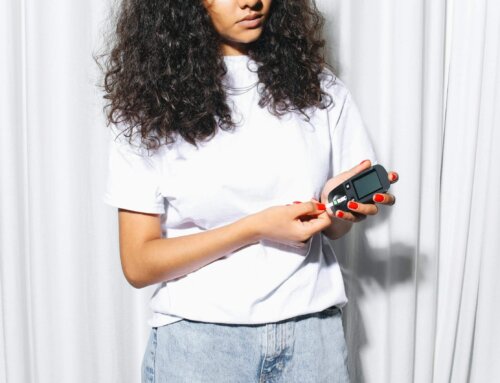

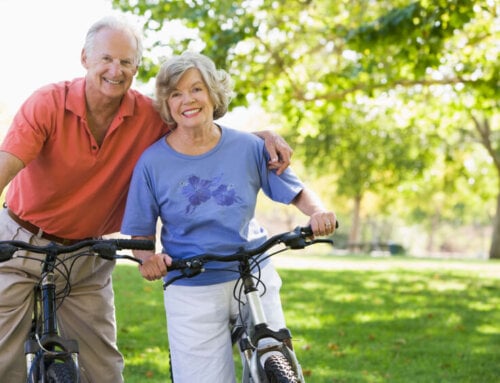

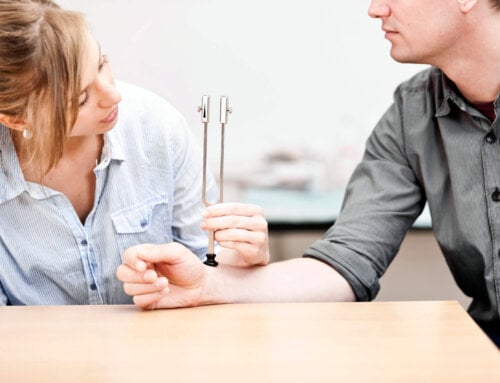
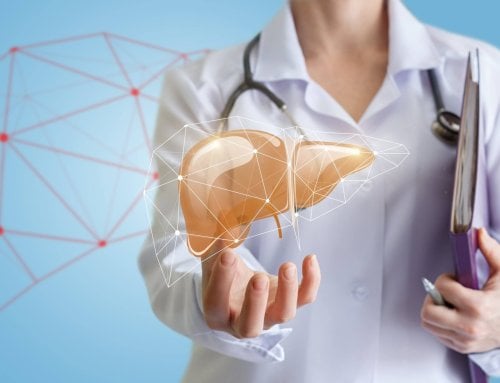

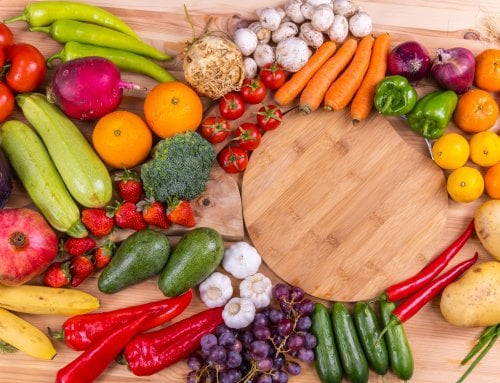
Leave A Comment